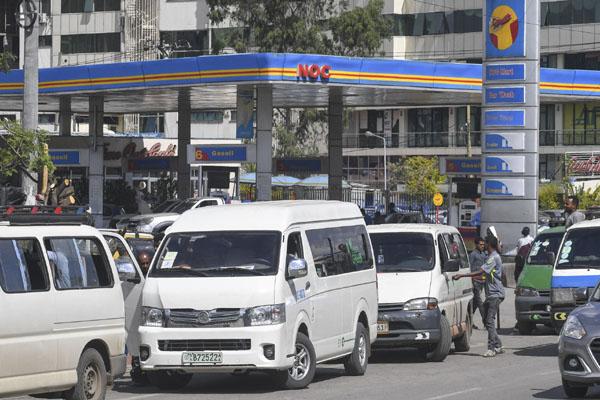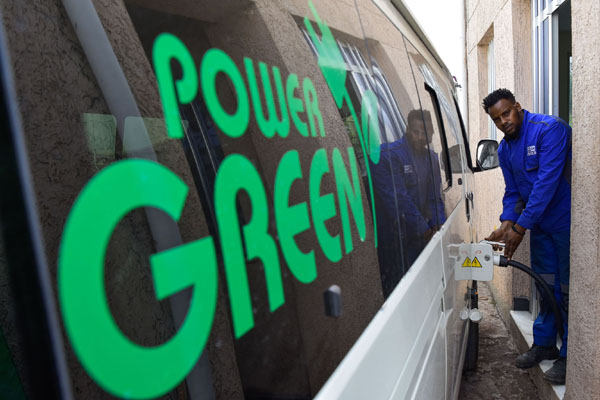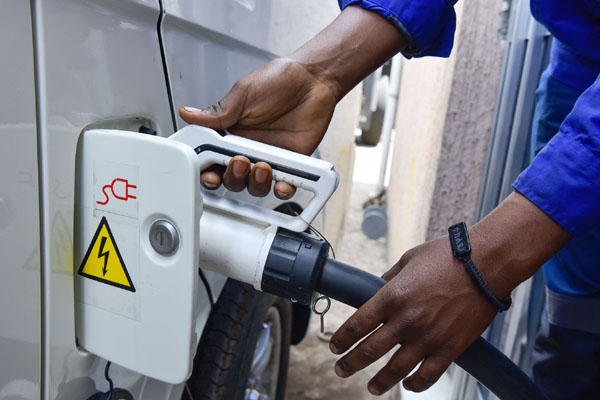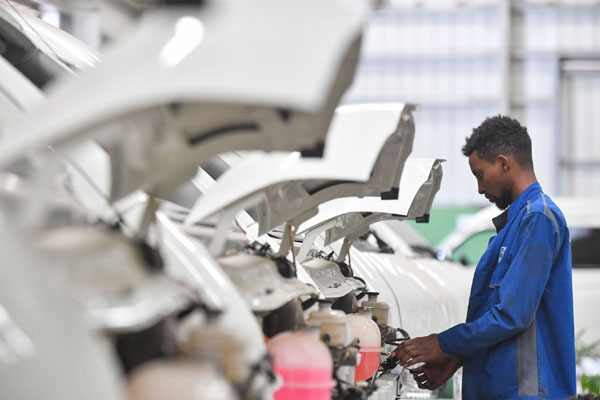
This is an electric minibus (second from left) photographed on the streets of Addis Ababa, capital of Ethiopia. AFP (Photo by Michael Tweed)


Workers are pictured charging an electric minibus at a factory in the Ethiopian capital Addis Ababa. AFP (Photo by Michael Tweed)

Workers are pictured assembling electric minibuses at a factory in the Ethiopian capital Addis Ababa. AFP (Photo by Michael Tweed)
The sun is shining in the East African highlands. On the streets of Addis Ababa, the capital of Ethiopia, driver Adamu yells for passengers in his recently replaced brand new electric minibus, hoping that it will be full and ready to go sooner.
The electric minibus driven by Adamu comes from China's Xiamen Golden Dragon Wagon Co., Ltd. and is exported to Ethiopia in a completely disassembled (CKD) manner, with the local Belene Jindi Metal Engineering Co. responsible for assembling it and bringing it to the market. At present, in Addis Ababa, there are about 20 drivers of operating vehicles like him, replacing old fuel vehicles with electric minibuses from China.
In Adamu's opinion, the electric vehicles are quieter, more cost-effective and easier to use than traditional fuel minibuses of the same class. "We take advantage of the lunch hour to charge the electric vehicles for 40 minutes. Unlike in the past, we don't have to spend money on fuel or stand in long lines at gas stations, and our daily income has increased compared to before." He said in a recent interview.
"I have driven different types of cars and I feel that this (electric) car is very unique because it is more comfortable and also reduces air pollution." After finishing his speech, Adamu set off with 15 passengers, most of whom were experiencing their first ride in an electric car.
Ethiopia's average altitude of nearly 3,000 meters, known as the "roof of Africa". The capital city of Addis Ababa is about 2400 meters above sea level, the highest city in Africa. In the local language, "Addis Ababa" means "fresh flowers". However, the serious pollution from automobile exhaust fumes in the area makes it difficult for people to associate this city with the "City of Flowers". According to incomplete statistics, there are about 1.2 million cars in Essex, most of which are second-hand cars imported from the Gulf countries and are more than 20 years old. Older vehicles add to the pollution of automobile exhaust.
Data from the Ministry of Transportation and Logistics show that the country will spend about $6 billion on fuel imports in 2023, more than half of which will be spent on fuel cars. Earlier this year in February, the Ministry of Transportation and Logistics announced plans to ban the import of gasoline and diesel vehicles in response to rising fuel prices worldwide. Earlier, as part of its development vision for 2021 to 2030, the Essex government had announced plans to import 4,800 electric buses and 148,000 other types of electric vehicles from abroad within 10 years to reduce the country's dependence on fuel vehicles.
The reporter learned that in addition to assembling electric minibuses, Belene Kindi Metal Engineering Company is also assembling a 12-meter-long electric bus imported from China to meet the country's growing demand for electric vehicles. The company's general manager, Shewaye, believes that the application of electric vehicles in Ethiopia has a broad prospect, and with more and more Chinese electric vehicles entering the local market, this will help Ethiopia realize energy saving and emission reduction.
Shewaye said that from the middle of 2023, the company will import electric vehicles from China in a completely disassembled way. This import method can significantly reduce transportation costs. In addition, the import tariff for complete vehicles is about 15%, and the tariff for importing electric vehicles in a completely disassembled way is almost zero, which is one of the initiatives of the Ethiopian government to encourage the development of electric vehicles and promote the transfer of related technologies.
"Assembling these electric minibuses also promotes local employment, and about 75 people in our company are involved in assembling the imported 216 electric minibuses." Chevalier said half of these electric minibuses have already been sold, with buyers ranging from urban public transportation service providers to government agencies.
According to Abella, the company's production manager, the first 50 electric minibuses were assembled with the help of Chinese colleagues. Abella expressed appreciation for China's development in the field of electric vehicle technology. "Chinese engineers came to Ethiopia and shared with us their knowledge in electric vehicle technology, including theoretical knowledge and practical skills. In the future, if we encounter problems, we will also be able to ask our Chinese colleagues for advice via video link." Abella said.

